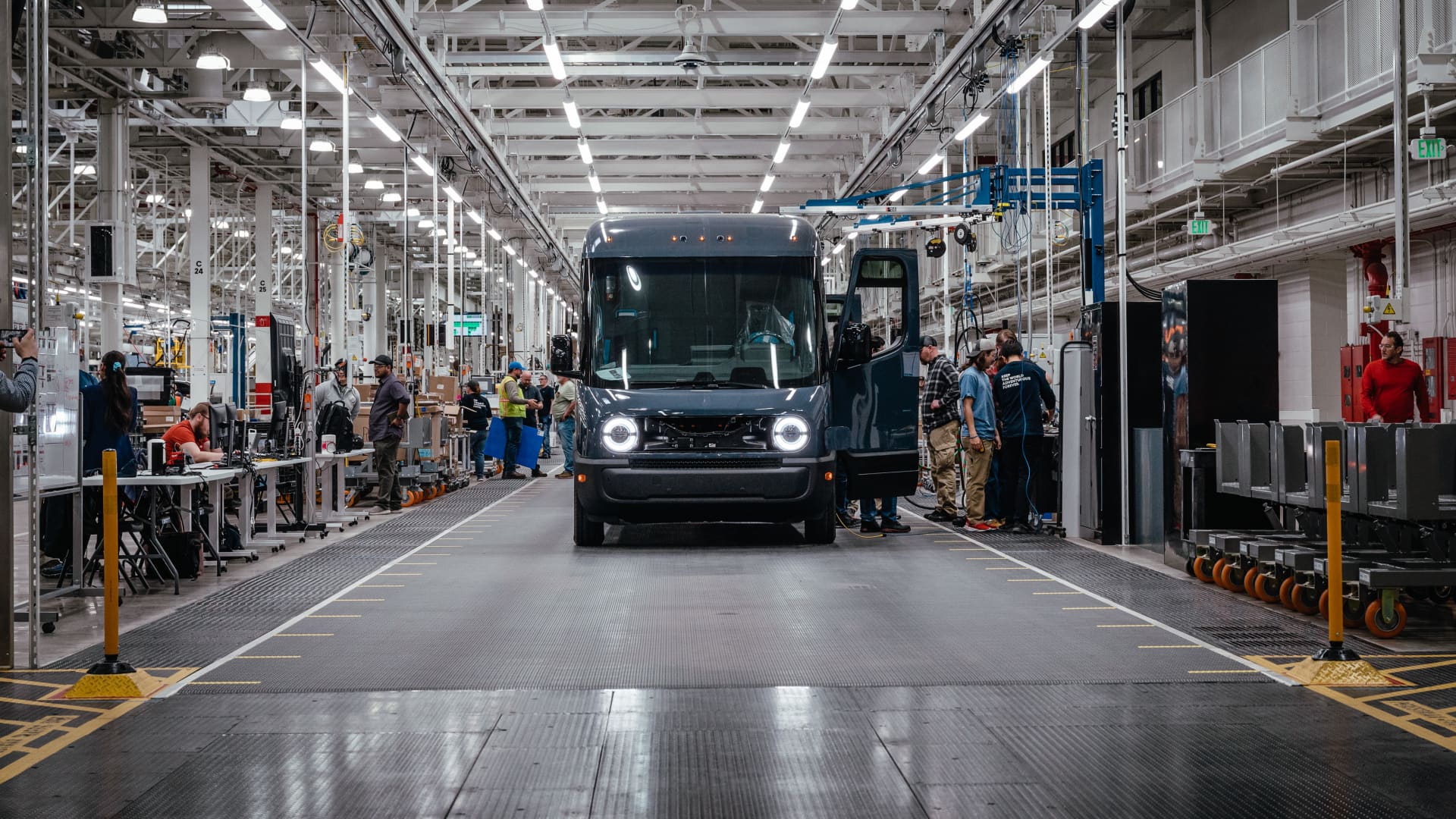An Amazon Rivian electric delivery van at the company’s manufacturing facility in Normal, Illinois, US., on Monday, April 11, 2022.
Jamie Kelter Davis | Bloomberg | Getty Images
Rivian said Monday it was pausing plans to manufacture electric commercial vans in Europe and would “no longer pursue” the agreement it made with Mercedes-Benz just three months ago.
“We’ve decided to pause discussions with Mercedes-Benz Vans regarding the Memorandum of Understanding we signed earlier this year for joint production of electric vans in Europe,” Rivian CEO RJ Scaringe said, noting the company was pursuing “the best risk-adjusted returns” on its capital investments.
“At this point in time, we believe focusing on our consumer business, as well as our existing commercial business, represent the most attractive near-term opportunities to maximize value for Rivian,” he added.
The U.S.-based electric vehicle manufacturer said it remains open to exploring future work with Mercedes-Benz “at a more appropriate time for Rivian.” The companies signed their original memorandum of understanding in September.
Mercedes-Benz said Rivian’s decision would not impact the timeline of its electrification strategy or the planned ramp-up of its new electric vehicle manufacturing site in Jawor, Poland.
“Exploring strategic opportunities with the team at Rivian in the future remains an option,” Mathias Geisen, the head of Mercedes-Benz Vans, said.
Monday’s news comes at a time when the European Union has raised concerns about the United States’ Inflation Reduction Act, which was signed into law by President Joe Biden in August.
According to the Department of Energy, the IRA “represents a historic, $369 billion investment in the modernization of the American energy system.”
Among other things, the IRA contains a tax credit for electric vehicles whose final assembly takes place in North America, which could represent a big challenge to European carmakers in the years ahead.
A major political and economic bloc consisting of 27 countries, the EU is planning to phase out the sale of new diesel and gasoline cars and vans.
—CNBC’s Silvia Amaro contributed to this report


